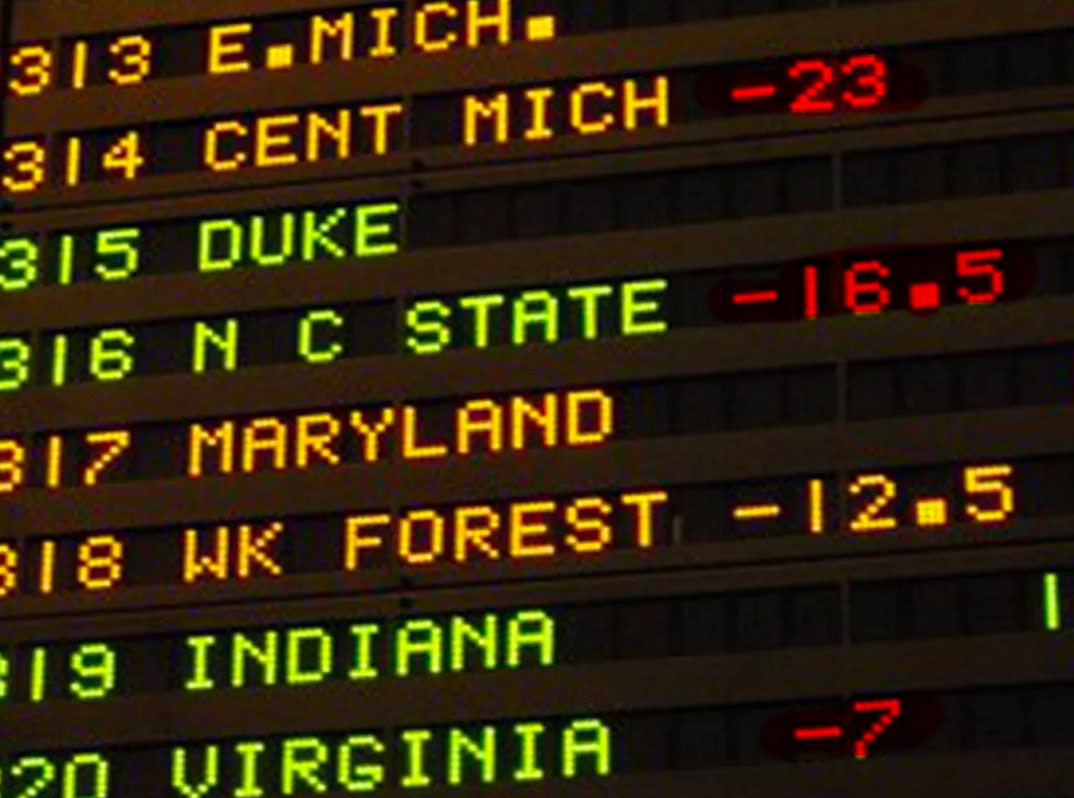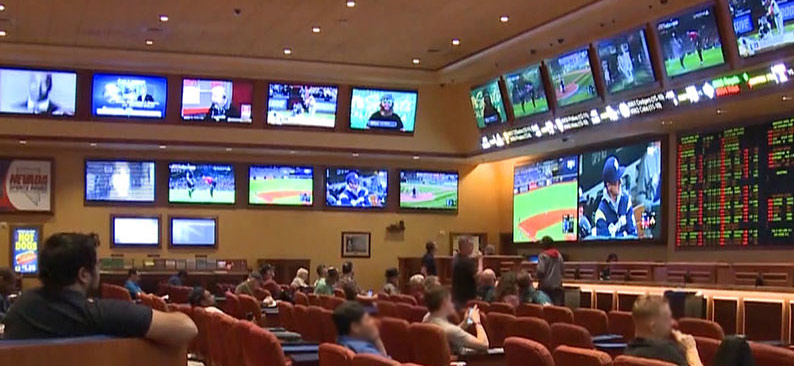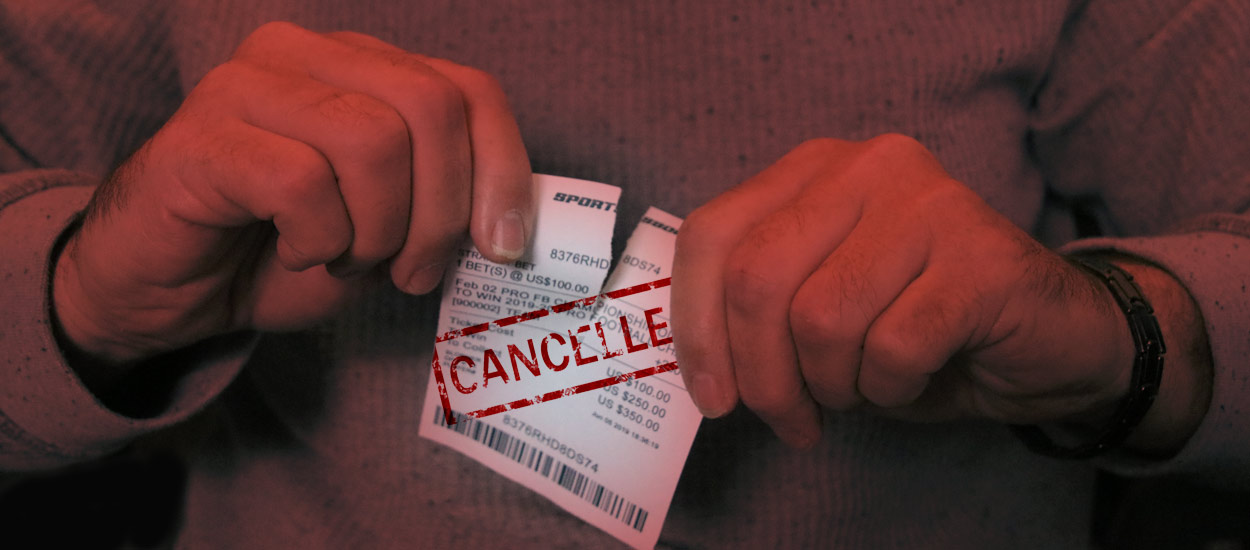The argument over bad lines and cancelled bets in sports betting is always contentious
Just over a year ago a William Hill land-based bookmaking shop wrote up a parlay ticket for a rugby team, the Salford Red Devils, to finish in the top 5 in their league at 8/1 odds and a player from that team, Jackson Hastings to win the Man of Steel (i.e. best player in the league) at 25/1 odds. The £100 parlay was set to pay £23,400 (which included a parlay bonus). Salford had a surprisingly good season and finished in 3rd place in the league after finishing 2nd last in 2018 and Jackson Hastings was named Man of Steel in October of this year. After the bettors posted about their lucky win on social media (a decision they likely now regret), William Hill announced that they were going to void the parlay because the bets were correlated (which the company called a "related contingency") and instead offered to settle as two separate £50 bets for a payout £1,700 only. William Hill stated that the ticket was the result of human error and the betting shop where it was written said the ticket writer must have been half asleep when he wrote it. The case is now before the Independent Betting Adjudication Service, a part of the UK Gambling Commission.
A couple of UK gambling analysts I spoke to have said that the service almost always sides with the sportsbooks, so at best the bettors will get £3,400 settled as separate £100 bets. I spoke of the story to a few bettors as well as to one sportsbook manager and not surprisingly the manager took the side of William Hill, while the bettors sided with those who placed the wager.
"If we were to accept bets on correlated lines or honor bad bets we’d be out of business in a heartbeat," the sportsbook manager said. But some comments from bettors were as follows:
But the players were less sympathetic to William Hill.
"If a sportsbook accepts a wager then it should stand. If a bettor makes an error in placing a bet, it’s not cancelled so why should the books be treated differently? These 2 bets are not the same, so the bet should stand."
"The big issue isn't with betting on bad lines but rather that sportsbooks will always look for a way not to pay on a large winning wager due to some technicality. I equate it to insurance companies who are always looking for some technicality that allows them not to pay claims."
"If a bet is bad then cancel it and send a note to the bettor before the event takes place. But to void a bet after the fact, in this case after the whole season is just cheating."
A former sportsbook owner once told people connected with OSGA that he just wanted a chance to win. In better words if the mistake was so egregious that the book couldn’t win the bet then it would be cancelled. But if it was a small human error then the bet stood.
A prime example of this took place at the 2005 United States Formula One Grand Prix when Michelin stated that its tires weren't safe to run at Indianapolis Motor Speedway and consequently seven teams with Michelin tires pulled off the track after the formation lap, while the other three teams running Bridgestone tires (Ferrari and the two worst teams) ran the race. The decision was considered such a travesty that fans littered the tracks with garbage as the three teams raced. Ferrari were only the 4th best team that year in F1 and Michael Schumacher was 10/1 to win the race after qualifying. The other teams were as high as 1,000/1 each. Most UK books honored the result, mostly because the formation lap is considered part of the race in the UK., but the rules at all U.S.-facing books stated that the race started only when the laps counted, which excluded the formation lap, so for their purpose only 6 cars started the race.  As it turned out some U.S. facing books, such as SBG Global, cancelled all bets on the race saying it was an unfair situation for everyone, some books such as World Sports Exchange paid out what they deemed would have been fair odds on Michael Schumacher to win the race (1/5 odds) given the 6 cars that started the race and other books just paid out the 10/1 odds on Michael Schumacher and bit the bullet. The former sportsbook was one of those books that paid the 10/1 odds. However, that book also offered a wager on drivers to finish in the points (top 6 finish at that time) and they cancelled all wagers on that bet. The back-marker Bridgestone teams were 30/1 to finish in the top 6 position and the sportsbook told bettors that the wagers were cancelled because it was a bet that the sportsbook couldn’t possibly win. Since only six cars started the race all cars had to finish in the points. Anyone who bet on the Michelin teams to finish in the top 6 would have had wagers refunded because they didn't start the race.
As it turned out some U.S. facing books, such as SBG Global, cancelled all bets on the race saying it was an unfair situation for everyone, some books such as World Sports Exchange paid out what they deemed would have been fair odds on Michael Schumacher to win the race (1/5 odds) given the 6 cars that started the race and other books just paid out the 10/1 odds on Michael Schumacher and bit the bullet. The former sportsbook was one of those books that paid the 10/1 odds. However, that book also offered a wager on drivers to finish in the points (top 6 finish at that time) and they cancelled all wagers on that bet. The back-marker Bridgestone teams were 30/1 to finish in the top 6 position and the sportsbook told bettors that the wagers were cancelled because it was a bet that the sportsbook couldn’t possibly win. Since only six cars started the race all cars had to finish in the points. Anyone who bet on the Michelin teams to finish in the top 6 would have had wagers refunded because they didn't start the race.
Bettors, on the other hand, came back with an argument that they were only betting on a rumor that the Michelin teams wouldn't run the race and had the cars indeed decided to run the race then the 30/1 cars likely had no chance of finishing in the points. That argument of course had little validity. Many American bettors were also furious that, unlike the UK, there was no independent body available to give an unbiased decision on whether the bets should have been honored or not.
Another example of where books decided to simply not pay out bets was in a small tennis match in Poland involving Nikolai Davydenko and Martin Vassallo Arguello, a nobody who was way down in the world rankings. Despite being a clear favorite, all the money came in on Arguello and continued to do so even after Davydenko won the first set. Things became more fishy after Davydenko withdrew from the match with “an injury” despite leading 2-0 in the second set. The general rule of tennis betting is that one set must be completed for action which explains why Davydenko played the whole first set, so to anyone with common sense it was clear the fix was in on this match (even though he was cleared by the ATP later). And all books that took action on this match cancelled this wager, including the Betfair Exchange. Betfair only takes a commission on winning bets, so it would have been in their interest to honor the wagers. But, Betfair deemed that, in their view, the match was fixed given the amount wagered and the progression of wagers and consequently to be fair to all bettors they decided to void wagers on the match, as was their prerogative.
The question still remains, however, as to what is a bad bet and what is a correlated wager? I asked two OSGA top-rated sportsbooks, Jazz Sports and BetDSI Sportsbook for their opinion on those questions. The questions are in bold italics.
What constitutes a bad line?
In the mind of the sports books what makes a line bad enough to cancel a wager on it? Obviously if a team should be even money, but someone adds a zero and are listed at 10/1 that's a bad line. But if a team should be even money and are listed at 3/2 should the books have the right to cancel those bets?
According to Jazz Sports bad lines are considered:
a) any two or three team event that is more than 100 basis points off of the market (Dodgers were posted as -125 rather than -225).
b) pools ---- more than three teams (First player to score) A bad line is usually 500 basis points OR a flip flop such as +200 when the correct line is -200
c) Futures --- A bad line is usually 1000 basis points off the market and applies primarily when a line is flip flopped or an extra 0 is added or missed.
Thoughts --- Each book has their own rules about what constitutes a bad line and certain players are held to a higher standard than others. A professional player or a player that constantly plays marginal lines has different rules than a regular player who puts a bad line in a parlay. At Jazz, in addition to the price differential, we look at intent of the player and whether the bet was made because it was a bad line and would not have been made otherwise. Diamond Sports had a similar response.
Diamond Sports had a similar response.
A "bad line" depends of course on what the market price is at the time, but the truth is it is very discretionary. A flipped favorite, of course, is a bad line, but these depend by sport and market type, but there is no blanket answer that covers every market, situation, sport. If it is a case where prices move based on market conditions - key injury etc. - most will honor the bet. If you simply started by putting up the wrong price, human error, most cases it will be deleted. in the example below yes, I would consider that a bad line +150 on a market that should be +100 is an obvious error, as it is pricing a player/team to have a 40% chance when they have a 50% chance. Other factors will come into play - if the customer is a good customer the bet may be honored depending on the circumstances. On the other side of that a customer who has been identified as sharp and clearly knew the price was wrong, may be handled differently. Then consider a customer who has an established bet size of $25 and has never bet more than $50 on a single wager over a year+, who then bets $500 on a "bad line" . . . there are many factors that come into play to address this question.
If a game or event already started how does that affect the bad line policy?
Jazz had one simple answer.
Whether the game started or not makes no difference, because if the player only made a wager due to an error then it is still an attempt to benefit from either a human or computer error.
Diamond Sports added,
Same answer, always "depends" . . . how many minutes are in the match and how many have passed? How many points have been scored? Was it a spread bet or a total bet? What is the score now? If a soccer bet is 3 mins in the game it may not be a factor, if the score is 1-0 3 minutes in, then it will. Was the bet in the game or the first half or . . . ? A match that has started is separate from a bad line, we are talking "past post" bet rather than a "bad line”. Again, the customer profile comes into play, a customer who knowingly bet an event after it started, or who did not and had no advantage to placing the bet. However, with live wagering there is an opportunity to compare the fair market price at the time the bet was made. In a real life situation, a game typically is not left open more than a minute (if at all) and any bet taken after say 10 mins of play (e.g., time change that was not caught) would be deemed a "past post" bet. Again, the circumstances determine the best answer.
Correlated bets
What is a correlated bet? Do you agree that betting a team to finish in the top 6 in the league and a player from that team to win MVP is correlated? Is betting on Clemson to be in the BCS games and their QB to win the Heisman a correlated bet? If yes, why? If no, why not?
According to Jazz Sports, there are multiple types of correlation.
a) game and total --- when the total/spread is less than 4 a game can be correlated
b) Halves ---- 5 to 1 is correlated
c) props within a family
d) baseball and hockey Run Line(puck line) to total are always correlated
e) soccer side to total are always correlated
Notes --- Parlays are made between TWO or more independent events so any time you parlay or tease wagers involving the same team you are not betting independent results.
BetDSI noted that in addition to the math behind the correlation, the timing of the bet is a factor.
In terms of sides and total the correlation is 33.3% or 1/3 - example of Thursday night Jets-Ravens game with a spread of -17 and total of 44. in terms of futures markets "it depends" e.g. Yankees RSW Over 108.5 and Yankees to win the Division is correlated. The smaller the market (e.g. 5 teams in the division vs 30 to win the World Series) the more likely to find a correlation restriction. betting Bregman to win AL Player MVP, to Cole to win AL Cy Young, to Astros RSW Over/or Division, is related. The college example, timing is a factor too - is the bet being made when the four teams have been set or before the season starts? A QB to win the Heisman and his team to win the National Championship would be related - just with the same game side to total correlation, there is no guarantee it will happen. But if A does, the odds of B also happening go up dramatically. Consider this, if you could bet Burrows/LSU, Lawrence/Clemson, Fields/Dobbins/Buckeyes etc. would you? Winston/FSU, Newton/Auburn, Ingram/Bama come immediately to mind.
What is a fair way to handle bettors who are constantly taking advantage of bad lines?
At Jazz, if a player seems to be focused on playing bad lines they will use the player to highlight errors and when the player makes a play they will check to see if it is a "bad" line or just an "off" line.
While most bad line bets are errors that can go unnoticed for a bit and are occasional accidents by members who have bet, BetDSI does have the system built in a way that they can set particular players to an approval process. Basically, some players' bets won't be accepted until approved by a manager.
At BetDSI, bad line bets are refunded or offered at the appropriate price if they have not gone off the board. According to BetDSI, "The caveat here though is about the member himself and the error. In some cases we may just let it stand. We did this in the past with a Tiger Woods bets on the Masters. We let a bad line stand due to our human error and the activity on the market. In the case where the behavior of a member is serial shot taker and is looking for these opportunities in the thousands of daily markets that exist, we would look to cancel those wagers and refund the account."
What is the recourse for bettors who believe the decision against them is unfounded?
One thing that is common now is that bettors use social media as a way to blackmail sportsbooks into making a ruling in their favor. This includes bad lines, but there are past post horses, incorrect team names, and props that are not specific. At Jazz, when a player disputes a ruling, they review the decision based on what is the logical fair result. They added, "This is based on interpretation of the wager, the players explanation, and what an average person would believe." Still, most sportsbooks hold that cards and make a final decision on these matters. If players continue to dispute the decision, sportsbooks like Jazz will try to come up with a settlement that works for both sides and close the players' account.
So once again a situation has arisen with the William Hill rugby bet, where a bettor has believed they won a fortune on a wager, while the sportsbook voided the wager citing it as a mistake due to human or computer error. I honestly have no opinion on whether this parlay was a bad bet considering I know little about rugby betting, however, I believe the wise comments from the sportsbook manager makes the most sense. If a line is so egregious that a sportsbook can't win, then the bet should be voided. And if a line is a clear mistake then bettors should not take advantage of the line and often if they point it out to the sportsbook, they'll be given a thank you bonus.
After all, the least that anyone can ask for both as bettors and sportsbooks is a fair chance to win a bet.
Read insights from Hartley Henderson every week here at OSGA and check out Hartley's RUMOR MILL!







































